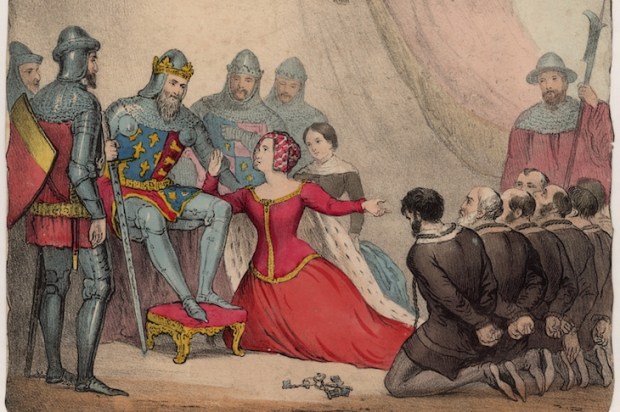Dr Ivan Mindlin was the in-house casino doctor at the Stardust in Las Vegas in the early 1970s. Mention any of the main characters in Nick Pileggi’s true-crime classic Casino: the Rise and Fall of the Mob in Las Vegas and the Doc knew them well, including the central characters Lefty and Geri Rosenthal. The mob monster Tony ‘the Ant’ Spilotro he didn’t know personally. He went out of his way to avoid him in fact, he says. But he and Spilotro shared a maid who was forever complaining about the mess Spilotro and his Hole in the Wall gang made when they were relaxing at home.
Doc took me as his guest to the splendid Blue Waters resort in Antigua last week while he negotiated a property lease with members of the government. He thought a spot of Caribbean sunshine might do me good. We shared a spacious family apartment with colonial-style furniture, pool, sea view and toilet paper an eighth of an inch thick. But Doc Mindlin doesn’t dwell on the 1970s, nor on the 1980s when he was so successful at sports betting using early computer software that a bookmaker paid him $50,000 a week if he didn’t bet on Mondays. He is now 88, and has about twice the energy I have and refuels on about a quarter of the sleep. And he is smart, as maybe only a Jew can be smart. He likes me because he thinks I am smart too, which tells me he isn’t quite as smart as he thinks he is. (And I look Jewish, he said.) He still puts his hours in assessing the daily data and making his bets. If I woke in the night I would see his face eerily lit by his laptop screen as he sat up in bed placing his American football bets for the next day.
And when it was light, he turned up the volume on CNN news, hauled back the curtain to reveal yet another day in bougainvillea paradise, and began to talk, while on screen, his orange face visibly darkening, President Trump signed directive after directive, and expensively dressed and coiffed studio pundits frothed at the mouth. Lately low in spirits, and tired of listening to other people’s opinions, I’ve decided that opinion is merely an expression of a feeling, usually a self-interested feeling. Doc enthusiastically agrees with this. He agrees because he believes that human beings are essentially gene-controlled robots and there is absolutely no such thing as free will or objective thought. Abandoning my position with indecent haste on hearing this terrifying reduction, I then became very opinionated and argued heart and soul for the existence of free will and a loving God. Surely, I said, if you have $1 million riding on the turn of a card or a late touchdown in a football game, you pray? He dismissed the accusation with a tiny shrug.
Another conversation revolved around E-prime, a radical new method of writing English that abjures the verb ‘to be’ because it deifies the writer’s identity and opinions. Instead of writing, say, ‘A foetus is a person’, under E-prime rules I should put: ‘In my system of metaphysics, I classify a foetus as a person.’ This seems po-faced and long-winded to me. Evangelists for E-prime believe, however, that changing the structure of language can alter the structure of the human brain as radically as a psychedelic drug. Doc is very excited about E-prime and hopes it takes hold.
Speaking of psychedelics, Doc wants me to get him some LSD. He is excited by the news that psychologists in the United States are successfully treating depression with the psychedelic drug psilocybin, and ordinary middle-class professionals are using LSD in minutely controlled doses as their daily smart drug. He is also excited about Crispr, a new, cheap genome-editing tool. Chinese scientists are using this to redesign the genomes of viable human foetuses. What the scientists aren’t telling us, however, he said, is that alterations are passed down the generations, leading to who knows what situation? My response to this was to give sincere and heartfelt thanks for the election of the man to be seen right now on CNN sternly flourishing that bloody great fountain pen of his.
My faulty, gene-led, still-primitive brain can take in only so much dizzying, up-to-the minute news about our cultural and scientific progress, even when fully functioning. It was a great relief, therefore, on the third day, to find myself seated at dinner at the opposite end of the table to the Doc and next to a laid-back veteran Antiguan government minister. I opened with the conversational gambit: ‘So what inspired you to go into politics, minister?’ His surprising answer was that he used to be Enoch Powell’s postman. Now I’d had enough. I sat back and took the rest of the evening off.
Got something to add? Join the discussion and comment below.
Get 10 issues for just $10
Subscribe to The Spectator Australia today for the next 10 magazine issues, plus full online access, for just $10.
You might disagree with half of it, but you’ll enjoy reading all of it. Try your first month for free, then just $2 a week for the remainder of your first year.















Comments
Don't miss out
Join the conversation with other Spectator Australia readers. Subscribe to leave a comment.
SUBSCRIBEAlready a subscriber? Log in